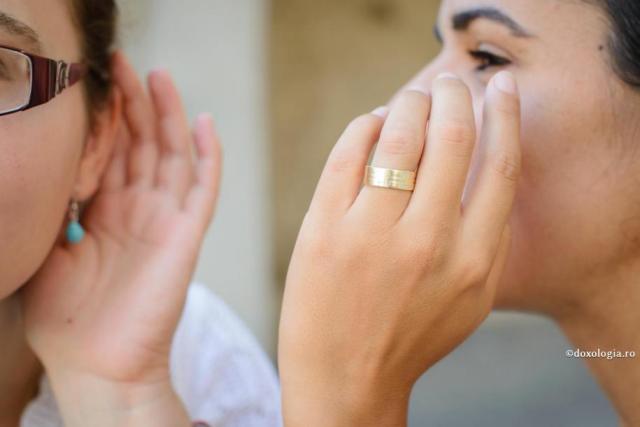Please God, watch my mouth!
Learn how to keep quiet even when it’s not bad to talk just to get used to this.
Learn how to keep quiet even when it’s not bad to talk just to get used to this. But be careful that your silence will not cause spiritual damage to you or to others. Learn how to stay away from people’s advice because instead of people you have as friends the angels, the saints and God.
Finally, remember the war that you hold in your hands. If you’d see how much energy you’d have to put in it most certainly you will want to avoid talking in vain.
How should we speak?
The greatest need is to know how to watch your tongue and to be able to keep it shut. Often, we talk out of pride thinking that we know a lot and pleased by our ideas, we struggle with a lot of thoughts and crafted words in order to stand up in front of the others, to be their teachers. Thus, we show them pride, as if they need to learn from us, especially when they didn’t ask for it.
It’s impossible to say in just few words how many mean things are born from much talking, which is the mother of laziness, fundament of ignorance and madness, door of slander, servant of lies and the death of fervent piety. Much talking strengthen and reinforce many passions, and from this our mouth starts easily to talk foolishly. This is why the Holy Apostle James, in an attemot to show how hard is to not to be mean in your speech, said that it is possible only for perfected men “For we all stumble in many ways. If someone does not stumble in speech, he is a perfect man, able to bridle the whole body as well” (James 3:2)
Because the mouth, once it starts talking, runs as an unbridled horse and speaks not only good and decent things but also bad things. This is why the Holy Apostle calls it “But the tongue can no man tame; it is an unruly evil, full of deadly poison” (James 3:8) and Solomon, in a similar way “Hatred stirreth up strifes: but love covereth all sins” (Proverbs, 10:12).
(Translated from Nicodim Aghioritul, Războiul nevăzut, Editura Egumenița, Galați, pp. 80-81)





